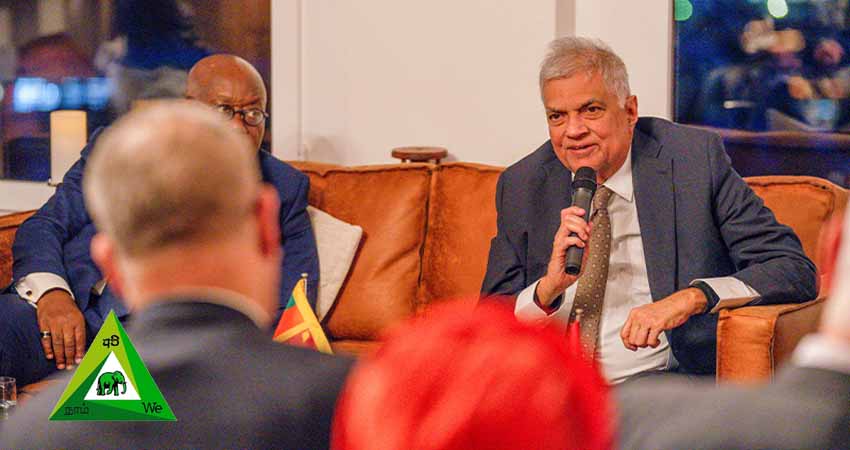Strategizing Climate Prosperity in a Zero Carbon World: A Blueprint for Success

- President calls on Developing Nations to aid in Creating a Just, Sustainable, and Prosperous Future.
President Wickremesinghe urged collaboration from development partners, the private sector, and the international finance community to support the V20-led Climate Prosperity Plans. He stressed the significance of this joint effort in delivering a just, sustainable, and prosperous future, considering resource constraints and the impact of climate change on fiscal space.
The President made these comments addressing the Roundtable organized by the Climate Vulnerable Forum (CVF) in Devos, Switzerland yesterday (16). President Wickremesinghe noted that he is dedicated to progressing investments in Climate Prosperity Plans (CPP), including the development of investor sheets for finance mobilization.
Recognizing the need for investments in training, skills, and digital technologies, he highlighted the critical role they play in job expansion and maximizing the benefits of a sustainable and climate-secure transition.
President Ranil Wickremesinghe expressed gratitude to former Maldives president Mohamed Nasheed for the invitation and emphasized the collective commitment to achieving development prosperity through climate action, underscoring the need for innovative solutions to create a sustainable world.
Addressing the deep inequities faced by vulnerable developing nations in the global south, President Wickremesinghe highlighted the disparities in climate change impacts despite minimal contributions to the global carbon footprint. He acknowledged the shortcomings of multilateral efforts and presented Sri Lanka’s proactive response with the launch of the Tropical Belt Initiative at COP28 in Dubai.
The Tropical Belt Initiative aims to attract private funds for the sustainability of critical climate resources in tropical regions, encompassing forests, mangroves, oceans, and renewable energy. President Wickremesinghe stressed the importance of developing robust plans and bankable projects, citing Sri Lanka’s Climate Prosperity Plan (CPP) as a blueprint for targeted investments.
The CPP focuses on resource-based sectors, ensuring the security of industries and supply chains. President Wickremesinghe highlighted the plan’s ambitions, aiming for Sri Lanka to become a net energy exporter by 2025, with renewable energy production surpassing 100% of domestic power needs by 2040.
Key projects within the CPP include low-carbon and productive agriculture initiatives, alongside offshore wind projects with local manufacturing. The President emphasized the inclusive impact of these investments, integrating rural agricultural economies and local manufacturing value chains.